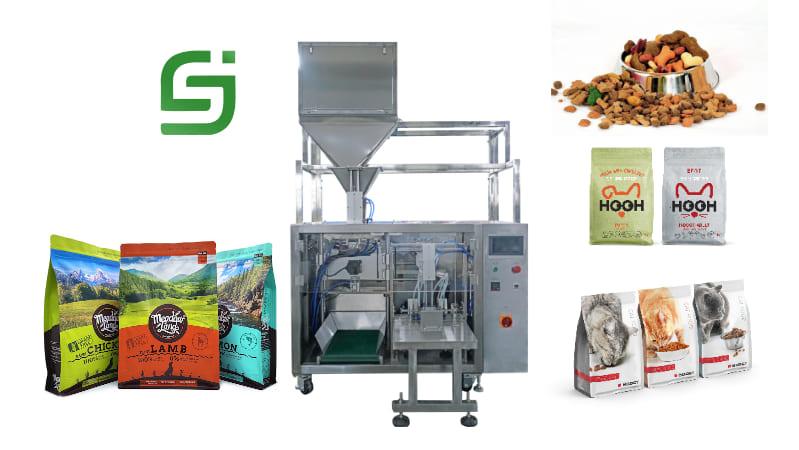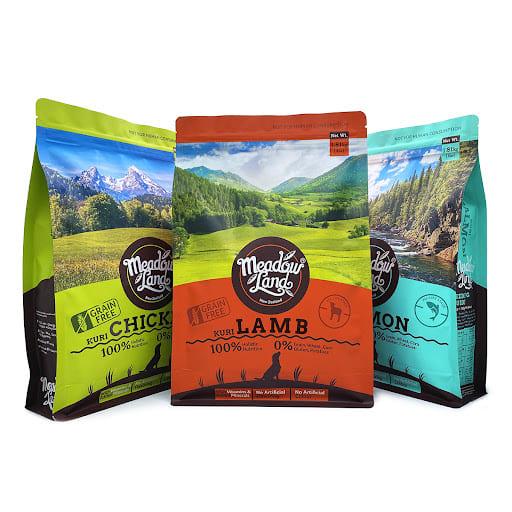Author:YISEN Pouch Packing Machine Manufacturer TIME:2025-03-05
Granule packaging machines have significantly evolved with the integration of intelligent control systems. These advanced technologies enhance efficiency, precision, and adaptability, making packaging processes more reliable and automated. This article explores the fundamental concepts, key benefits, and challenges of implementing intelligent control systems in granule packaging machines, along with future trends shaping the industry.
Intelligent control systems refer to automated technologies that leverage real-time data, algorithms, and machine learning to optimize operations with minimal human intervention. In granule packaging machines, these systems utilize components such as programmable logic controllers (PLCs), Internet of Things (IoT) devices, and artificial intelligence (AI) to monitor and adjust packaging parameters dynamically.
By processing sensor data in real-time, intelligent control systems can make automated adjustments to ensure optimal speed, temperature, sealing pressure, and weight accuracy. This technology minimizes errors and enhances the overall efficiency of the packaging process.

Sensors play a vital role in intelligent control systems by providing accurate, real-time data on various packaging parameters. These sensors enable precise control and enhance quality assurance. Key types of sensors used in granule packaging machines include:
Weight Sensors (Load Cells): Ensure precise product weight in each package, preventing underfilling or overfilling.
Moisture Sensors: Detect the moisture content of granules to maintain product quality and prevent spoilage.
Optical and Vision Sensors: Identify packaging defects, misalignments, or irregularities in sealed packages.
Temperature and Pressure Sensors: Regulate sealing conditions to ensure airtight packaging and prevent material wastage.
With these sensors continuously feeding data to intelligent control systems, granule packaging machines can automatically make necessary adjustments, improving accuracy and efficiency.
Implementing intelligent control systems in granule packaging machines brings numerous advantages, including:
Automation allows granule packaging machines to operate at higher speeds with minimal downtime. The ability to self-adjust parameters ensures a continuous and efficient workflow, reducing production delays.
By leveraging real-time data from sensors, intelligent systems ensure precise measurements of granules, reducing product giveaway and maintaining consistency in package weight and quality.
Optimized machine settings reduce energy consumption, material wastage, and labor costs. Predictive maintenance features also help identify potential issues before they lead to costly breakdowns.
Modern granule packaging machines can adapt to various packaging formats, sizes, and materials, allowing manufacturers to cater to different product requirements and market demands effortlessly.
While the benefits are substantial, there are challenges to consider when adopting intelligent control systems:
The integration of intelligent control systems requires advanced technology, specialized software, and skilled personnel, leading to significant upfront costs.
Many manufacturers face challenges when integrating intelligent control solutions into their existing granule packaging machines, requiring expert support and customized solutions.
As these systems rely on IoT connectivity and cloud-based data storage, they are vulnerable to cyber threats. Implementing robust cybersecurity measures, such as encryption and access control, is essential.

The industry is rapidly evolving, with emerging technologies set to enhance the capabilities of granule packaging machines further. Key future trends include:
Advanced AI algorithms will enable predictive maintenance, allowing machines to detect potential failures before they occur, reducing downtime and repair costs.
The integration of smart factories, where granule packaging machines communicate with other production equipment via IoT, will optimize workflows and data-driven decision-making.
Intelligent systems will contribute to sustainability by optimizing material usage, reducing packaging waste, and improving energy efficiency.
Intelligent control systems are revolutionizing granule packaging machines, offering increased efficiency, precision, and adaptability. Despite challenges such as high initial investment and cybersecurity concerns, the long-term benefits outweigh the drawbacks. As technology continues to advance, the adoption of intelligent control systems will become essential for manufacturers looking to remain competitive in the packaging industry.
